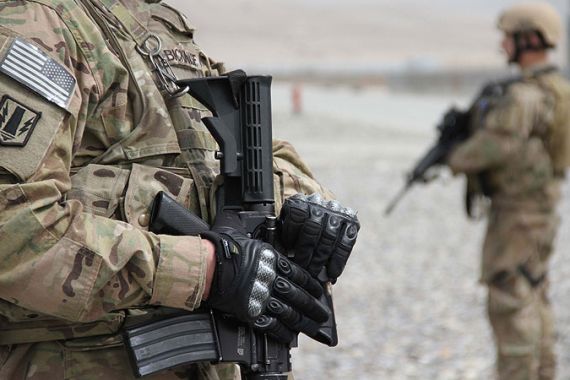NATO says al-Qaeda No 2 in Afghanistan killed
Saudi-born Sakhr al-Taifi said to have commanded foreign fighters and directed attacks on Western and Afghan forces.

NATO says al-Qaeda’s second-in-command in Afghanistan has been killed in an air raid near the Pakistani border.
The US-led International Security Assistance Force in Afghanistan, or ISAF, said on Tuesday that Saudi-born Sakhr al-Taifi was killed on Sunday in Watahpur district, Kunar province, which borders Pakistan.
Al-Taifi, also known as Musthaq and Nasim, commanded foreign fighters and directed attacks on NATO and Afghan troops.
NATO described al-Taifi as al-Qaeda’s “second highest leader in Afghanistan”, saying he frequently travelled between Afghanistan and Pakistan, “carrying out commands from senior al-Qaeda leadership”.
He also supplied weapons and equipment to insurgents, and managed the transport of anti-government fighters into Afghanistan, the military said.
The US-led invasion of Afghanistan was carried out because al-Qaida chief Osama bin Laden used the country as his base to plan the September 11, 2001, attacks in New York and Washington.
Al Jazeera’s Bernard Smith, reporting from Kabul, said: “There’s a concern amongst foreign forces that once NATO combat troops withdraw at the end of 2014 … al-Qaeda could try and take the opportunity to re-establish a foothold here … So Nato says that this killing today for them is a significant success in stopping al-Qaeda from operating here.”
Most of al-Qaeda’s senior leaders are now believed to be based in Pakistan, where they fled following the US invasion. The “terrorist” organisation is believed to have only a nominal presence in Afghanistan.
Many senior al-Qaeda commanders have by killed by US drones in Pakistan’s northwest tribal region, and bin Laden was killed by US commandos in the Pakistani town of Abbottabad last May.
Bin Laden advised al-Qaeda fighters to leave Pakistan’s North and South Waziristan tribal areas because of the threat of drone attacks, according to letters seized from the compound where he was killed. The documents were later released by the US.
In one of the letters, bin Laden recommended they go to Afghanistan’s Kunar province because of “its rougher terrain; too many mountains, rivers, and trees that can accommodate hundreds of brothers without being spotted by the enemy,” according to the Combating Terrorism Center at West Point, which published the documents.